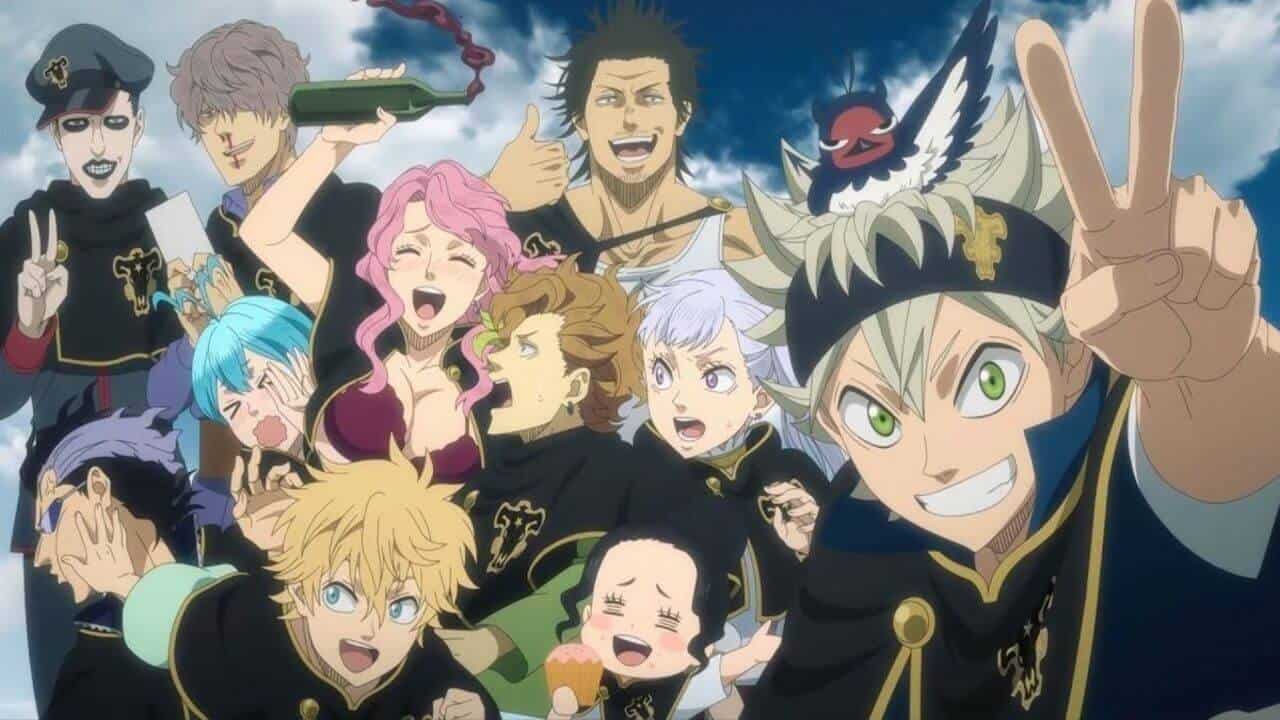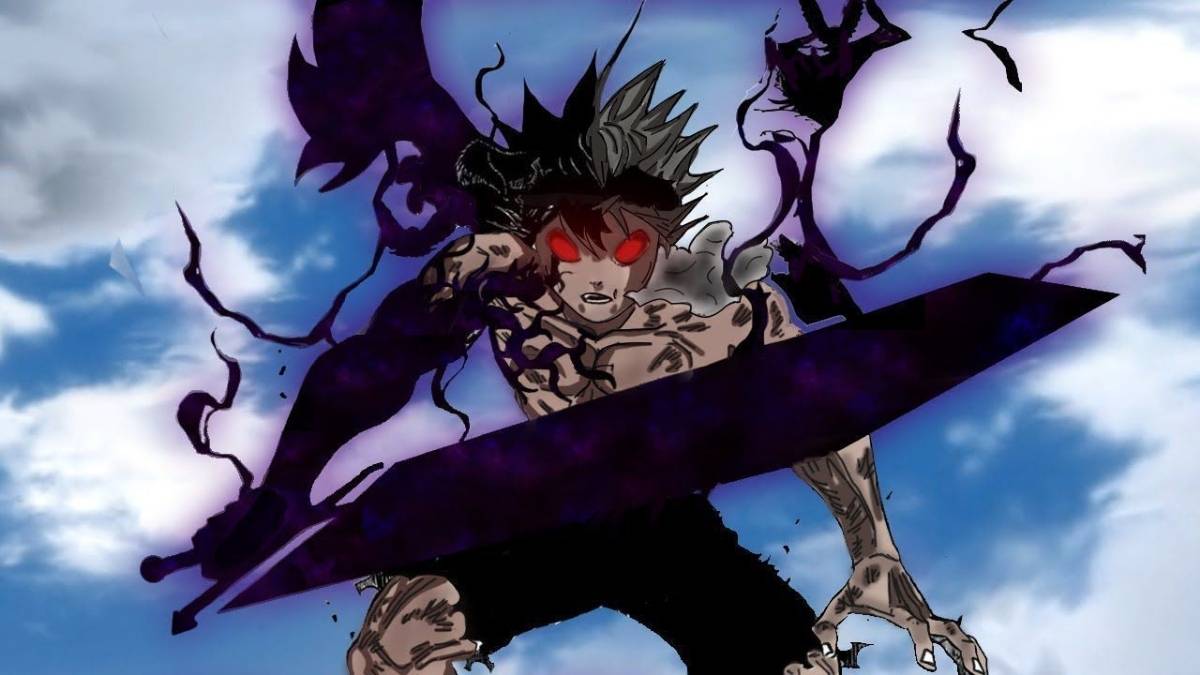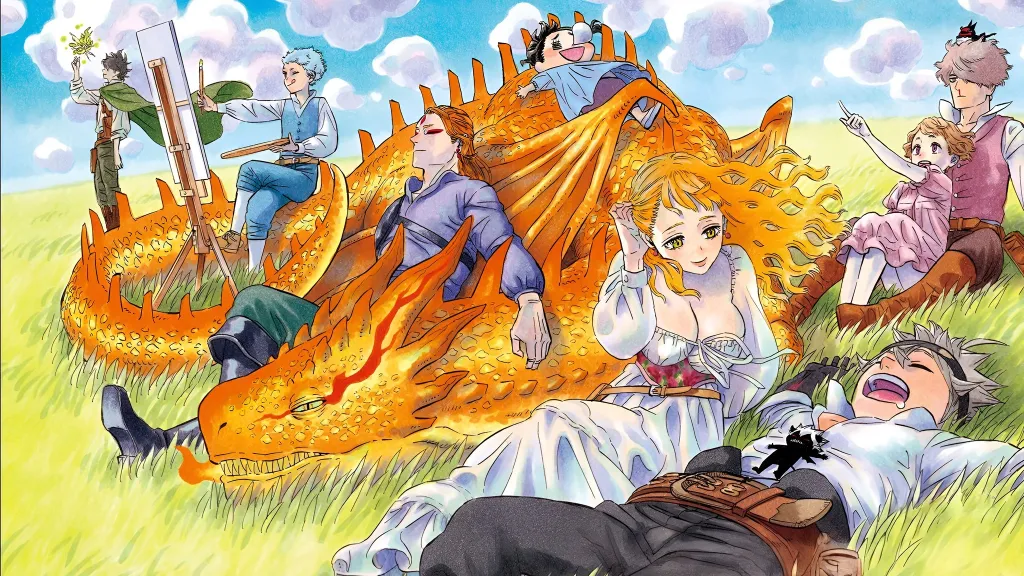In the world of Black Clover, the protagonist Asta is an orphan raised in the Clover Kingdom, but when it comes to his nationality, the short answer is: he is from the Clover Kingdom, making his nationality “Clover Kingdom” rather than any real-world country. In this article, we’ll explore what nationality Asta has, what his backstory says about his origin, and why that matters for his character and journey.

What Nationality Is Asta from Black Clover?
To answer what nationality Asta from Black Clover is, he is a citizen of the Clover Kingdom within the manga world, so you could say his “nationality” is Clover Kingdom.
Understanding the Fictional Setting & Nations (Clover Kingdom, Spade Kingdom, Heart Kingdom)
The world of Black Clover is built upon a complex network of magical nations, each with distinct cultures, power systems, and political ideologies. Understanding these kingdoms is crucial to grasping the series’ central conflicts, character motivations, and the larger world-building that drives the narrative forward. The main realms, the Clover Kingdom, Spade Kingdom, and Heart Kingdom, each play a vital role in shaping the story’s magical balance and the fate of humanity.
Clover Kingdom: The Heart of Magic and Hierarchy
The Clover Kingdom serves as the primary setting of Black Clover and the birthplace of the main characters, Asta and Yuno. It’s a magically advanced but socially stratified nation, where citizens are ranked according to their magical ability and noble lineage.
- Capital City: Kikka, home to the Magic Emperor (Wizard King) and headquarters of the Magic Knights.
- Government: Ruled by the Magic Parliament and the Wizard King, symbolized by the clover grimoire.
- Society: Deeply divided between nobles, commoners, and peasants, reflecting rigid class inequality.
The Clover Kingdom’s magic system revolves around grimoires, books that enhance a user’s spells. The number of leaves on a grimoire’s clover symbolizes one’s qualities, with the legendary five-leaf grimoire representing demonic power.
The nation’s theme of ambition versus fate is embodied by Asta and Yuno’s journey, two orphans defying societal limits to rise within a world obsessed with magical talent.
Spade Kingdom: The Land of Darkness and Conquest
In contrast, the Spade Kingdom represents tyranny, corruption, and the pursuit of power at any cost. Once a prosperous land, it fell under the control of the Dark Triad, Dante, Vanica, and Zenon Zogratis, who draw strength from devils residing in the underworld.
- Government: Dictatorship led by the Dark Triad, with the devil Lucifero manipulating from the shadows.
- Magic Style: Dark and destructive, heavily influenced by devil possession.
- Symbolism: The spade symbolizes greed and domination, fitting for a nation driven by the lust for ultimate strength.
The Spade Kingdom’s invasion of neighboring territories sparks one of the series’ most intense arcs, the Spade Kingdom Raid Arc, where alliances between nations are tested. This kingdom embodies Black Clover’s darker themes: the cost of power, moral corruption, and the blurred line between salvation and destruction.
Heart Kingdom: The Nation of Nature and Harmony
The Heart Kingdom, in contrast, acts as a spiritual and natural balance to the other nations’ chaos. Governed by Queen Lolopechka, it’s a peaceful realm where magic flows harmoniously with nature, regulated by ancient runes and the Spirit Guardians.
- Government: Monarchy led by the Water Spirit and the Queen.
- Magic Focus: Elemental and rune-based, with spells tied to mana zones and environmental control.
- Symbolism: The heart emblem represents life, connection, and empathy.
The Heart Kingdom teaches magic through balance and emotion rather than domination, emphasizing the bond between humans and nature. It also plays a crucial role in helping the Clover Kingdom’s mages master mana control, offering a new dimension to the magic system’s evolution.
Political and Magical Balance Between the Kingdoms
The three main kingdoms aren’t just geographical divisions, they represent ideological contrasts that define Black Clover’s moral universe:
| Kingdom | Core Theme | Leadership | Magic Type | Symbol |
|---|---|---|---|---|
| Clover Kingdom | Ambition & Hierarchy | Wizard King | Grimoire-based magic | Clover |
| Spade Kingdom | Power & Corruption | Dark Triad | Devil-infused magic | Spade |
| Heart Kingdom | Balance & Nature | Queen Lolopechka | Elemental rune magic | Heart |
These opposing philosophies create both tension and synergy. While Clover seeks progress, Spade seeks domination, and Heart seeks harmony, together, they form the moral and magical triad of the Black Clover universe.
Beyond the Three: Diamond Kingdom and the Unknown Lands
While the Clover, Spade, and Heart Kingdoms dominate the story, there are other lesser-known regions, such as the Diamond Kingdom, known for its military experimentation and artificial mages. It serves as a reminder that the Black Clover world is still expanding, with potential for future arcs exploring new nations, gods, or ancient civilizations.
These settings enrich the world-building and create endless possibilities for future conflicts and alliances, a hallmark of Black Clover’s enduring appeal.
Understanding the fictional nations of Black Clover is essential to appreciating the series’s world-building depth. Each kingdom, Clover, Spade, and Heart, represents a unique philosophy of magic, leadership, and human ambition. Together, they form the stage for epic wars, moral dilemmas, and character growth that define the story’s core themes.
In the end, Black Clover isn’t just about spells or battles; it’s about how different visions of power and harmony shape an entire world.
Asta’s Origin and Where He Was Raised
Digging deeper into Asta’s backstory helps illuminate his identity.
- Asta was left as a baby at the church in Hage village, located in the Clover Kingdom.
- His mother, Licita, abandoned him there, and he grew up under the care of the church alongside his friend-rival, Yuno.
- He was born in the “Forsaken Realm” within the Clover Kingdom’s territory.
All these details confirm that his origin is entirely within the Clover Kingdom, meaning his nationality in-universe is as a subject of that nation.
Why Nationality Matters for Asta’s Character & Story
You might ask: “Why does it matter what nationality Asta has?” The answer is: his nationality is tightly linked to his identity, struggles, and goals.
Identity and Belonging
- Being raised as an orphan in the Clover Kingdom, yet from the “Forsaken Realm,” gives Asta a sense of not quite fitting in; this motivates his drive to become the Wizard King and protect the Kingdom.
- His nationality thus becomes part of the theme: someone from the bottom of society in his country, aiming for the top.
Social & Structural Implications
- The fact that he is from the Clover Kingdom but has no magic (in a world where virtually everyone does) makes his nationality relevant: he is a citizen who is disadvantaged by the very system of his country.
- His journey then involves not just personal growth, but challenging the status quo of his own nation.
Narrative Purpose
- By making him from the Clover Kingdom, and not some exotic foreign land, the story centers on change within the system, not external invasion.
- His nationality, therefore, helps support the central conflict: improving one’s own nation from the inside.
Common Misconceptions & Clarifications
Like many long-running fantasy series, Black Clover has inspired a variety of fan discussions, and with them, a fair share of misunderstandings about its world, lore, and characters. Let’s clarify some of the most common misconceptions that often circulate within the fandom, especially regarding the kingdoms, the magic system, and the story’s deeper symbolism.
Misconception 1: The Clover Kingdom Represents “Good” While the Spade Kingdom Represents “Evil”.
One of the most widespread misunderstandings is the moral polarization of the kingdoms. Many fans assume the Clover Kingdom is the embodiment of good because it’s home to the main protagonists, while the Spade Kingdom is purely evil due to the Dark Triad’s tyranny.
Clarification: In truth, Black Clover avoids such simplistic morality. The Clover Kingdom is plagued by corruption, elitism, and discrimination, particularly against commoners and peasants. Meanwhile, the Spade Kingdom’s people are not inherently evil; they’re victims of oppression under demonic rulers. Tabata intentionally blurs moral boundaries to show that good and evil coexist within every nation, reflecting real-world social complexity.
Misconception 2: The Heart Kingdom Is Weaker Because It’s Peaceful
Some fans interpret the Heart Kingdom’s pacifism and spiritual focus as signs of weakness, especially compared to the militaristic Spade Kingdom or the ambitious Clover Kingdom.
Clarification: The Heart Kingdom’s strength lies in its deep connection to natural mana and ancient runic magic, which surpasses the power of many traditional spells. Its people have mastered Mana Zone control, an advanced technique that even elite Clover mages struggle with. Far from being weak, the Heart Kingdom represents balance and discipline, showing that harmony with nature can be as powerful as brute force.
Misconception 3: The Diamond Kingdom Is Irrelevant to the Main Story
The Diamond Kingdom often receives less focus, leading some fans to believe it serves only as an early antagonist and holds no major relevance.
Clarification:
While it hasn’t been in the spotlight lately, the Diamond Kingdom is key to understanding Black Clover’s technological and scientific evolution. Unlike the other nations that rely on spiritual magic, the Diamond Kingdom experiments with artificial enhancement and magical biotechnology, a stark contrast to natural mana flow. This theme could foreshadow future conflicts between nature and technology, a topic Tabata has subtly introduced through characters like Mars and Lotus.
Misconception 4: Magic Power Is Determined Solely by Birth
A recurring theme in Black Clover is that magical potential is often seen as predestined by lineage, a belief that has led to misconceptions among viewers that commoners can never surpass nobles.
Clarification: This belief is directly challenged by Asta and Yuno’s journey. While Yuno’s royal origins are later revealed, Asta’s strength comes entirely from hard work, willpower, and anti-magic, proving that effort and determination can transcend genetic limits. The story deliberately deconstructs the idea of “magic as destiny,” reinforcing Black Clover’s core message: true strength is earned, not inherited.
Misconception 5: The Grimoire Determines a Mage’s Fate
Many fans assume that once a mage receives a grimoire, their future abilities are fixed and predetermined by that book.
Clarification: Grimoires grow alongside their users. The spells they reveal are influenced by the mage’s emotions, growth, and personal journey. This dynamic system symbolizes the human capacity for change; even those born with limited power can evolve beyond expectations. Asta’s five-leaf grimoire, for example, continuously adapts as he learns to control anti-magic, showing that destiny in Black Clover is never static.
Misconception 6: Devils and Humans Are Irreconcilable Enemies
Given the dark history of the underworld, some believe that devils are inherently evil and incapable of coexistence with humans.
Clarification: Characters like Liebe, Asta’s devil companion, prove that devils possess individuality, emotion, and morality. Liebe’s bond with Asta dismantles the stereotype of pure evil and highlights the series’s ongoing exploration of acceptance and coexistence. This nuance aligns with Black Clover’s broader narrative, where even beings born from darkness can seek redemption through understanding and compassion.
Misconception 7: The Series Is Just a Typical “Magic Shonen”
Because of its initial similarities to other shonen titles, Black Clover is sometimes dismissed as a standard “magic tournament” story.
Clarification: While it embraces classic shonen energy friendship, rivalry, and determination, Black Clover evolves far beyond that formula. Its detailed geopolitical structure, moral gray areas, and themes of social hierarchy, prejudice, and personal growth make it a far more layered narrative. What starts as a story about becoming the Wizard King transforms into a philosophical examination of power, equality, and destiny.
The world of Black Clover is often misunderstood because of its vibrant magic and high-paced storytelling. Yet beneath the surface lies a deeply reflective narrative about society, morality, and human potential. By clearing up these misconceptions, fans can better appreciate the series’ thematic depth, one that goes beyond spells and battles, and delves into the spirit of transformation and unity.
What Nationality Would Asta Be If Real-World Parallels Applied?

If we tried to map Asta’s nationality to a real-world equivalent, we might say:
- He is from a fictional kingdom, so a direct real-world match is impossible.
- But we can compare: a young man from a modest village, orphaned, and trying to redeem his nation from within might parallel a citizen from a small, marginalized region in a large state.
- The point isn’t the exact country, but the position he starts in: underdog in his own national system.
Thus, his “nationality” remains fictional and tied to his narrative rather than our real world.
In conclusion, when you ask “what nationality is Asta from Black Clover?”, the clear in-universe answer is that he is a citizen of the Clover Kingdom. His nationality is integral to his identity, his struggles, and his ambition to transform his nation from within. If you’re enjoying his journey, you can explore more about this series at the official Black Clover Wiki or join fan discussions.
FAQ: Frequently Asked Questions About Asta’s Nationality in Black Clover

What nationality is Asta from Black Clover?
Asta is from the Clover Kingdom, one of the main nations in the Black Clover universe. This means his nationality is Clover Kingdom citizen. He was born and raised in Hage Village, located in the Forsaken Realm, the poorest region of the Clover Kingdom. Unlike real-world nationalities, Asta’s identity is tied to his country of origin within the story’s fictional world, rather than to any real-world nation.
Where exactly was Asta born in the Clover Kingdom?
Asta was born in Hage Village, a small rural area within the Forsaken Realm, which lies on the outskirts of the Clover Kingdom. His mother, Licita, abandoned him there to protect him due to her life-draining magic. This village plays a crucial role in Asta’s humble beginnings, showing that he comes from the lowest social tier of the kingdom yet dreams of becoming the Wizard King, the strongest mage in Clover Kingdom.
Does Asta have any connection to other kingdoms like Spade or Heart Kingdom?
No, Asta has no direct nationality or lineage from other kingdoms such as Spade, Heart, or Diamond. However, his anti-magic abilities are connected to Liebe, a devil who originated from the underworld. This has led some fans to speculate that Asta’s powers or heritage might not be entirely “Clover-born,” but there’s no canonical evidence suggesting Asta himself comes from another nation.
Why do some fans think Asta might not be from the Clover Kingdom?
Some fans speculate about Asta’s origins because of his unique anti-magic powers and lack of magical energy, traits unlike typical Clover Kingdom citizens. Additionally, his mother’s mysterious past and her isolation fueled theories that Asta could be linked to the Spade Kingdom or another realm. However, the manga confirms that both Asta and his mother, Licita, lived in the Clover Kingdom, making him a Clover national by birth.
How does Asta’s nationality influence his role in Black Clover?
Asta’s nationality is central to his character arc. Being from the Clover Kingdom’s poorest region, he represents the underprivileged who are often ignored or oppressed by the noble elite. His journey to become the Wizard King is symbolic; it’s not just about power but also about breaking the class hierarchy within his own country. His identity as a Clover Kingdom citizen underscores the theme of rising from nothing to greatness.
Is Asta’s nationality ever questioned in the story?
Not officially. Within the story, no one questions Asta’s nationality; what they question is his worth as someone without magic. Characters often look down on him for being powerless, poor, and from the countryside, but not for being a foreigner. This distinction emphasizes that Asta’s struggle is about social status, not nationality.
Could Asta’s nationality change in the future?
In theory, if Asta were to join another nation like the Heart or Spade Kingdom permanently, his allegiance could shift. However, narratively, Asta’s identity is deeply tied to the Clover Kingdom, his home, his friends, and his ultimate dream to become Wizard King of Clover Kingdom. So it’s highly unlikely his nationality will ever change.
How does Asta’s nationality compare to Yuno’s?
Asta and Yuno grew up together in the same orphanage in Hage Village, but their backgrounds differ. While Asta is a commoner born in Clover Kingdom, Yuno is secretly a royal from the Spade Kingdom. This contrast in national origins enhances the narrative tension between them, two boys with different backgrounds but the same dream of becoming Wizard King.
What does Asta’s nationality symbolize in the story?
Asta’s nationality symbolizes resilience, humility, and hope. Being a commoner from the Clover Kingdom’s outskirts, he embodies the idea that greatness can come from anywhere. His determination to protect his homeland, despite being mistreated by its elite, reflects Black Clover’s central theme. That true strength lies not in birth, but in effort and conviction.
Does Asta’s nationality affect his relationship with other kingdoms?
Yes, to an extent. Asta’s loyalty to the Clover Kingdom makes him a representative of its values and ideals when interacting with other nations like Heart and Spade. However, his humble background and open-mindedness allow him to form alliances across borders, showing that his nationality defines his roots but not his limits.
You May Also Like:
Who is guy with yellow aura in Blue Lock?
What Comes After Overlord Anime The Sacred Kingdom
Is There Alternate Universes in Dragon Ball Super?

